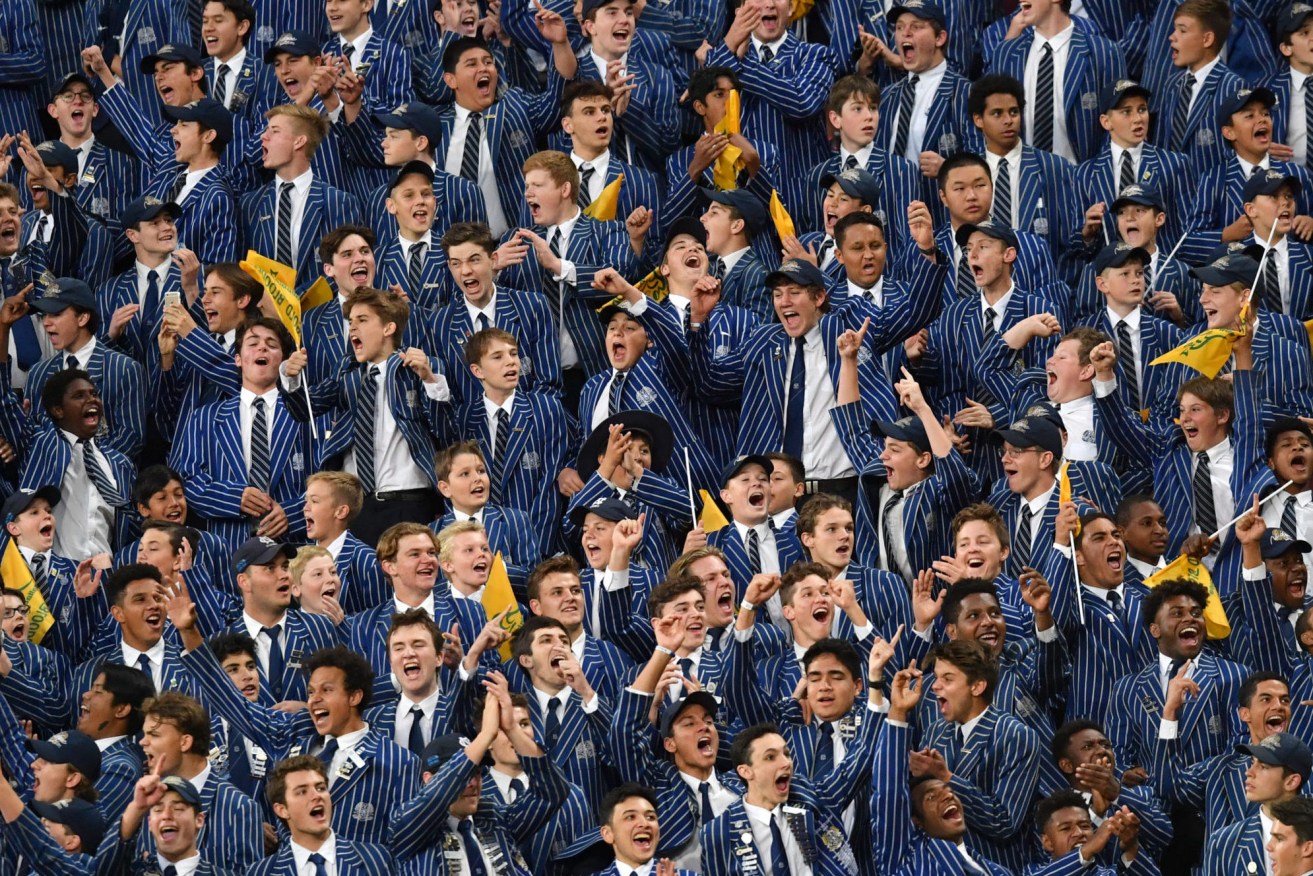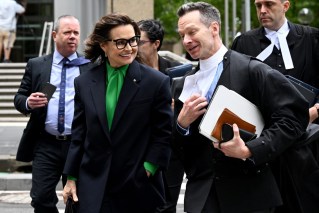For the love of the game: How our leading schools dropped the ball on GPS rugby
Just as professionalism has taken over rugby at its highest levels, the code’s schoolboy version is also big business in Queensland – but for whose benefit? Michael Blucher investigates


Rural parents who send their children to boarding schools generally work to a shorter school year. (Photo: AAP Image/Darren England)
The school bell’s ringing. We’re ready to go. Another season of GPS rugby is about to kick-off.
How good. And thank the Lord our educational power brokers have been nimble enough to dodge the volley of COVID bullets, to get the season up and running (for now).
At one point it looked like the entire competition would be skittled. What a horrible waste that would have been – all those rugby scholarship holders, sprinkled liberally across the Brisbane GPS school system, unable to fulfil their primary tertiary purpose, their singular obligation to their school – eight games of 1st XV rugby.
Schoolboy footy – it’s serious business these days. Once upon a time, there was just one or two schools propping up their rugby program with “imports”, or “bursarial offerings”, as many of the schools now call scholarships, to soften the crude commercial edge.
In 2020, all the schools have an active rugby scholarship program – they have to, to safeguard against getting belted 80-zip week in week out by the genuine rugby powerhouses, the schools with scholarship holders in their 2nd XV.
As a result, every year we’ve got this frantic race to the top (or the bottom, depending on your view), as our private schools jostle and joust for the state’s finest young footballing talent.
If it’s genuine rugby union pedigree, that’s a bonus, but more and more frequently, those being offered scholarships are junior rugby league players, dragged into the GPS net to scratch the premiership itch of ambitious school boards, their principals, and their ever proud, chest-beating alumni.
The schools of course hide behind their scholarship program, citing “the unprecedented opportunities they are affording students who’s families would otherwise not have access to such venerable educational resources”.
No doubt.
But the truth is most of the kids have already signed rookie contracts with NRL clubs – their future, once they “graduate” is clearly mapped out.
To better understand the crass transactional nature of these current “bursarial offerings”, in years gone by, scholarship placement came after lengthy discussions between the student, his parents, and the school enrolments officer. Perhaps the school councillor if they were available.
These days it’s more likely to be a negotiation between the “student’s” player agent and the school’s director of sport, or head of rugby, in the presence of the enrolment officer. Perhaps the principal too, if they’re big on rugby.
What exactly are you offering my client? What other concessions will be made? Will he have to attend classes if he doesn’t want to? What about incremental expenses? Who’s picking up those?
Yep. Rare educational opportunities, indeed.
For all the imperfections of the current system, it’s not the offering of scholarships per se that’s the primary problem.
The notion itself is admirable, and over the years, “rare educational opportunities” have been provided, grasped, and lives changed as a result.
Instead, the bulk of the issues today stem from the poor implementation and management of the scholarship program, specifically, the failure to immerse the “outsiders” into the broader ethos of the school, to enforce the boundaries, to properly nurture, to hold them accountable and heaven forbid, treat them like all the other students.
As much as schools might bang on about their “holistic approach”, the scholarship holders know it’s a crock, and so to do their full fee-paying peers.
“Don’t worry about that Maths exam. We’ve got BBC at Toowong this Saturday. You practise your goal kicking.“ It happens all time. No genuine structure to their inclusion in the school, no emotional scaffolding to help them scale up and down the pedestal on which they’re placed on account of their ability to run, kick and tackle.
Not that many years ago, one “GPS rugby” super star, having secured his school a premiership, didn’t even turn up for term four. His work was done. He spent the last of his grade 12 “school days” in a gym, in a far away part of the land, building muscle mass for the NRL season ahead.
Good luck to him. But the broader question is this: Why are hard-working parents paying to put aspiring NRL players through secondary school? Because that’s effectively what’s happening.
And not only does their little Johnny miss out on the opportunity to play in the 1sts, having been in the “A’s” all through school, his Mum and Dad are subsidising his replacement.
Not happy Jan. Or Johnny.
A very recent example, the North Queensland Cowboys match day squad a few weeks ago had three “students from the Brisbane Grammar School’s 2017 1st XV. Three, out of 17, Grammar old boys. And that’s not to sink the boot into Grammar. In the context of the modern day, they’re one of the comparative easy beats. They’ve had games called off early, the mercy rule applied.
No, nothing to see here folks.
At another school last year, one of the grade 11 students took the afternoon off school to play in the “Emerging State of Origin Match” – the curtain-raiser to the big one at Suncorp Stadium.
Anybody taking notes for him in the modern history class he was missing? Probably not.
What’s much harder than identifying what’s wrong, is working out how to make it right.
There’s plenty to like about GPS rugby, starting with the quality of the games themselves. In a lot of instances, it’s as good as sporting entertainment as you’ll get. The skill level, the fearlessness, the freedom of movement – it’s brilliant football.
But is that what the pinnacle of our education system should be focusing on producing?
Of course not. Go to school to get A’s, not be in the A’s.
In the pursuit of a better way, what about the introduction of a points system that incentivises private schools to get scholarship holders into the system early? If Kalyn Ponga for instance arrives at Churchie in Year 5, he’s worth 0 points. In grade 10, he’s 50 points, but if he’s pitchforked into the school quadrangle in January of Year 12, he accounts for 300 points. And every school only has 500 points at their disposal.
It would be an honour system, of course, but I can’t see that being an issue. After all, isn’t that what the schools instil in their students? Character. Honesty. Integrity? Or is that just when it suits?
There is real opportunity here for the principals of our best schools to band together on this issue and show some genuine leadership. Some true bottle.
Self interest and individual agendas need to be put to one side for the sake of the greater good.
Because here’s some information for free – what we’ve got going at the moment aint working. Not for students, not for the schools, and certainly not for the game of rugby union.
The adults need to start acting like adults, because from my experience, kids are smart. Really smart. And perceptive.
They can spot and smell “bullshit” from 400 paces.
And at the moment, the kids are calling “bullshit”.
*Michael Blucher is a Brisbane Grammar old boy who spent almost 10 years working in senior management at the Queensland Rugby Union.












